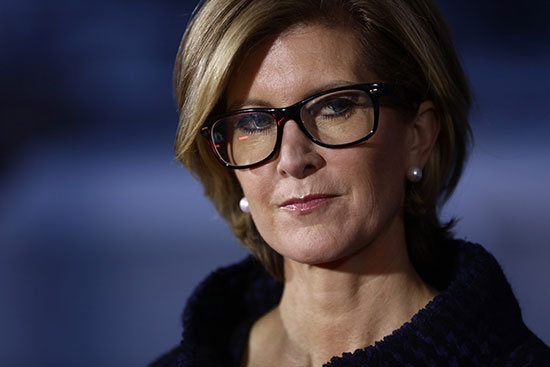上市失败的WeWork,摩根大通为何要救?

|
在IPO受阻之后,共享办公公司WeWork面临的当务之急就是融资问题。摩根大通的银行家们目前已经与WeWork的高层就融资问题展开了谈判,然而就在这时,一位意想不到的大佬也参加了这场谈判。 作为摩根大通资产和财富管理部门的负责人,玛丽·卡拉汉·厄尔多斯负责管理的资本高达2万亿美元,因此她通常不会参加对企业的融资谈判。但据知情人士透露,厄尔多斯亲自参与了摩根大通对WeWork的融资事务。这也足以表明,摩根大通与这家它投资了数十亿美元的共享办公创业公司之间的关系之深。 据消息人士称,厄尔多斯之所以亲自参与WeWork的融资事务,是由于WeWork的联合创始人、前首席执行官亚当·诺伊曼与摩根大通有密切的个人银行业务联系。由于公司IPO的失败,诺伊曼已经不再担任WeWork的首席执行官了,但他仍然留任公司的非常务董事长一职,同时也仍然是WeWork的最大股东之一。他的大部分个人财富,与WeWork公司以及该公司的前景都有直接关系。 这一点对摩根大通也很重要,因为摩根大通在WeWork的利益,不仅仅是这几年提供给它的几十亿美元贷款,也不仅仅是由它作为主要承销商、目标融资30亿美元的IPO,或者是它策划中的IPO成功后为WeWork追加的60亿美元债务融资。(据报道,在IPO失败后,WeWork与摩根大通的谈判主要围绕一笔价值约30亿美元的债务融资——虽然这笔交易能否成功,还要看它的大金主软银是否能注入一笔新的股本。不过摩根大通和WeWork的代表都拒绝就本文发表评论。) 摩根大通之所以如此积极地帮WeWork脱困,也是考虑到了诺伊曼与它的个人银行业务关系。除了直接向诺依曼提供了9750万美元的贷款(包括抵押贷款),摩根大通等几家银行还向诺依曼提供了5亿美元的信贷额度,这些贷款以诺依曼在WeWork的股份作为担保。简单说来,诺依曼之所以能够用个人名义向摩根大通、瑞银和瑞士信贷借到5亿美元贷款,靠的是价值5亿美元的WeWork股份作抵押。如果WeWork倒闭了,那么这些抵押品也就失去了价值。 这样看来,我们就不难理解,厄尔多斯和她的老板——摩根大通CEO杰米·戴蒙为何对WeWork的前景如此关注。摩根大通已经向WeWork倾注了大量的财力资源,为了不让这一切打水漂,两位大佬只好亲自上阵主持交易。摩根大通不仅是WeWork的控股方之一,据WeWork的S-1招股说明书披露,摩根大通内部的多个实体还持有超过1850万股的该公司A类股票。摩根士丹利的分析师也在最近的一份报告中称,摩根大通在WeWork的持股比例为4%。(高盛也持有1.4%的WeWork股份。据分析师们估算,高盛可能会对它持有的WeWork股份减记2.64亿美元。而归功于自己对这些投资的会计操作,摩根大通很可能会规避这种损失。) 此外,摩根大通还有声誉的考虑。摩根大通的IPO咨询业务一直比不上老对手高盛和摩根士丹利。今年是它的IPO咨询业务的复苏之年,摩根大通本来是要把WeWork的IPO塑造成一个成功典范。结果非但典范没有树立起来,摩根大通自己还因为这笔交易被卷到了风口浪尖。更糟糕的是对公司的名声有损——除了WeWork上市失败,今年以来,Lyft和SmileDirectClub的上市也非常不顺,摩根大通也是这两家公司的主要IPO承销商。 对摩根大通来说,WeWork的上市失败,也让它在沙特阿美的IPO代理权之中平添了一些变数。沙特阿美的IPO也受到了万众瞩目。虽然摩根大通已经被指定为此次IPO的承销商之一,但摩根大通内部仍然希望自己有机会成为这笔交易的主要承销商,从而通过这样一次“史上最大IPO”获得救赎。 当然,这种事说起来容易,做起来难。据《华尔街日报》10月10日报道,沙特王储穆罕默德·本·萨勒曼希望沙特阿美的估值为2万亿美元,但承销商的估值趋于1.5万亿美元左右。另外,这笔交易的结构十分复杂,还面临一些监管方面的挑战,这些因素也是必须要考虑的。还有,沙特阿美似乎更青睐首先在沙特的国内交易所上市,之后在进入国际上的主要交易所。最后,沙特阿美如果在美国(比如纽交所)上市,可能还会与美国的证券监管规定发生冲突,并且引发外界对该公司治理问题的一些质疑。 总之,摩根大通今年的经历直白地告诉了我们,IPO绝对不是一件容易的事。(财富中文网) 译者:朴成奎 |
As bankers at JPMorgan Chase have knuckled down with WeWork’s top brass over financing that would provide the beleaguered office provider with much-needed liquidity in the wake of its derailed IPO, an unexpected presence has been involved in the talks. As head of JPMorgan’s $2 trillion asset and wealth management division, Mary Callahan Erdoes doesn’t typically partake in corporate finance negotiations. But Erdoes has been a fixture when it comes to WeWork-related matters at the bank, according to sources with knowledge of the discussions—a testament to how deep ties have run between America’s largest financial institution and the coworking startup it backed to the tune of billions of dollars. Erdoes’ involvement stems from JPMorgan’s significant personal banking ties with WeWork co-founder and former CEO Adam Neumann, sources said. Neumann have stepped down as chief executive amid the fallout from the company’s floundering IPO, but he remains WeWork’s non-executive chairman and one of its largest shareholders—with much of his personal wealth tied directly to the company and its prospects. That’s important to JPMorgan, because the bank’s interests in WeWork go beyond the billions of dollars in loans it’s provided the company in recent years, the attempted $3 billion IPO on which it served as lead underwriter, or the $6 billion in additional debt financing that it drew up for WeWork contingent on a successful public offering. (In lieu of the collapsed IPO, WeWork’s recent discussions with JPMorgan center around a new financing package reportedly worth up to $3 billion in debt—though such a deal is likely contingent on an influx of new equity capital from prolific backer SoftBank. Representatives for JPMorgan and WeWork declined to comment for this article.) In looking to guide WeWork out of its current malaise, the bank is also accounting for its considerable relationship with Neumann on the personal wealth management side of its business. In addition to $97.5 million in loans, including mortgages, that it directly extended to Neumann, JPMorgan is among a consortium of banks that provided the WeWork co-founder with a $500 million line of credit. That credit is secured by Neumann’s shares in the company—which means that as WeWork goes, so does the value of the collateral against which Neumann personally borrowed half a billion dollars from JPMorgan, UBS and Credit Suisse. In that sense, it’s understandable why Erdoes and her boss, JPMorgan CEO Jamie Dimon, have taken such an outsized interest in WeWork’s prospects. Both executives have been directly involved in the bank’s dealings with the coworking firm, as JPMorgan looks to salvage the myriad financial resources it’s poured into the company. Those include an equity ownership stake in WeWork; the company’s S-1 prospectus disclosed various JPMorgan entities as holding more than 18.5 million Class A shares in the firm, and Morgan Stanley analysts pegged the bank’s stake in WeWork at 4% in a recent note. (The analysts estimated that Goldman Sachs, which owns a 1.4% stake in WeWork, could take a $264 million writedown on its shares in the company—with JPMorgan likely avoiding such a hit thanks to its accounting of its investments.) But perhaps above else, there are reputational factors to consider. WeWork’s public offering was meant to be the crowning achievement of a resurgent year for JPMorgan’s IPO advisory business, which has traditionally lagged behind its rivals at Goldman Sachs and Morgan Stanley. Instead, the bank has been scrutinized for letting the deal get as far as it did—with the wreckage of WeWork’s failed IPO joining disappointing offerings this year by Lyft and SmileDirectClub, both of which had JPMorgan as their lead underwriter. For JPMorgan, it’s had the effect of raising the stakes as far as Saudi Aramco’s highly anticipated upcoming IPO is concerned. While the bank is among a cadre of Wall Street giants tapped to shepherd the state-owned oil producer’s massive public offering, internally, JPMorgan likes its chances of being anointed the lead underwriter on the deal—giving it a shot at redemption via potentially the largest IPO of all-time. Of course, that’s much easier said than done. While Saudi Crown Prince Mohammed bin Salman is said to desire a headline-grabbing $2 trillion valuation for Aramco, that number could end up coming in at closer to $1.5 trillion, the Wall Street Journal reported on October 10. And there’s also the deal’s convoluted structure and regulatory challenges to account for; Aramco appears braced to initially list on Saudi Arabia’s domestic stock exchange before eventually tapping a major international exchange—though a listing in New York, for instance, could potentially fall afoul of U.S. securities regulations and questions about the company’s corporate governance. As JPMorgan has found out firsthand this year, IPOs can be far from a straightforward proposition. |













